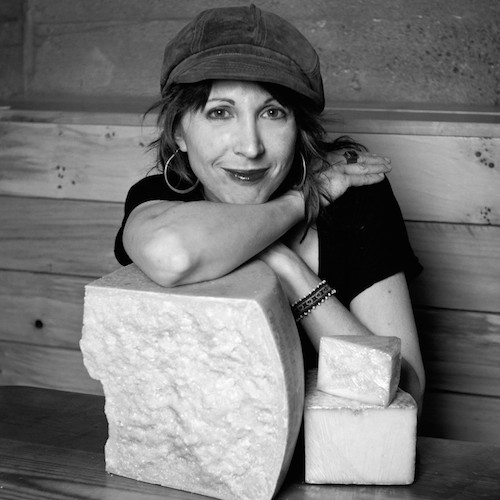
Will Studd moved to Australia from his native England in 1981 to help shake up the culinary scene—after opening five upscale delis in London in the early 1970s, he wanted to spread the love of good food Down Under. Studd started a Melbourne-based cheese distribution company and partnered with chef Stephanie Alexander to open the city’s Richmond Hill Café and Larde. He made international headlines in 2004 when he protested his adopted country’s raw-milk cheese ban by importing 175 pounds of Roquefort. After a legal battle upheld the ban, he held a public burial for the French blue. These days, Studd—a Maitre Fromager of the Guilde Internationale des Fromagers—resides in Byron Bay, New South Wales, with his wife, Bonnie. Culture caught up with the author, speaker, and television host (his series Cheese Slices recently filmed its 60th episode) to talk everything from butter to rock bands.
ON DISCOVERING CHEESE
In the early 1970s I studied economics at Leeds University. After graduation I trained as an accountant but hated every minute of it. Instead, I found a job at a posh food and wine shop called Justin de Blank, where I was first exposed to Swiss
Gruyère, cut from the wheel. It was a revelation. Since then I’ve been fascinated by cheese—how fresh milk is transformed into such an extraordinary selection of delectable choices is a marvel, and the skills and stories that surround the make process are inspiring.
ON AMERICAN CHEESEMAKERS
The United States has the most dynamic artisan cheese movement in the world. What I love about American cheesemakers is their willingness to try new things and take on challenges, rather than be restrained by tradition. I really admire David Gremmels of
Rogue Creamery and the Kehler brothers of
Jasper Hill Farm for their community spirit and sense of purpose. They’re about a lifestyle, not just a product.
ON ENTREPENEURIAL BEGINNINGS
My first job was picking strawberries. I was hopelessly clumsy and got moved to cleaning out the stables and pigsties. I also started a small pancake business at my boarding school to make some pocket money. It was so successful the teachers closed it down.
ON AUSTRALIA’S CHEESE SCENE
When I moved here, it was virgin territory in terms of specialty cheese, and there was no such thing as locally made farmstead cheese. Today there are dozens of Australian cheesemakers making original products from cow’s, goat’s, sheep’s, and buffalo’s milk. Nick Haddow of
Bruny Island Cheese in Tasmania is a particular favorite of mine. He has a very creative mind and has unwaveringly stuck to his plans to make C2, the first and currently only cooked curd raw cow’s milk cheese in Australia.
ON THE CULINARY EVOLUTION DOWN UNDER
Over the last 10 years, farmers’ markets have changed the public’s perception of seasonal and local foods and created a new awareness about agriculture. They’ve connected growers and consumers and created an increasing demand for good quality produce.
ON OFF-BEAT DAIRY DESTINATIONS
Bhutan is a very special part of the world; I’ve visited many times, and its caring, contented people and amazing Himalayan backdrop revive the soul. The local cheese is made with yak’s milk and is fresh and simple, but it makes sense for the terroir. It was in Bhutan that I first realized that in many parts of the ancient world, butter—regardless of quality—was a much-needed fat and essential for cooking, and the traditional cheeses we love today were a luxury afterthought.
ON MUSIC
I saw the Rolling Stones in Mexico City earlier this year, and the band was on fire. Living proof that age doesn’t matter— unless you’re a cheese!
Feature Photo Credit: James Morgan, Alquimie
Laurel is a contributing editor at culture and a food and travel writer based in Austin, Texas. She also serves as editor at Edible Aspen.







